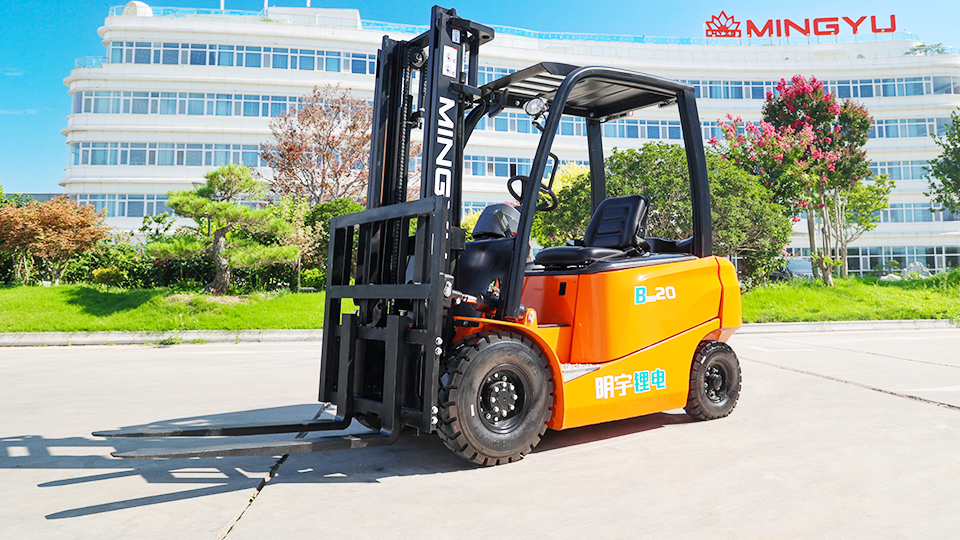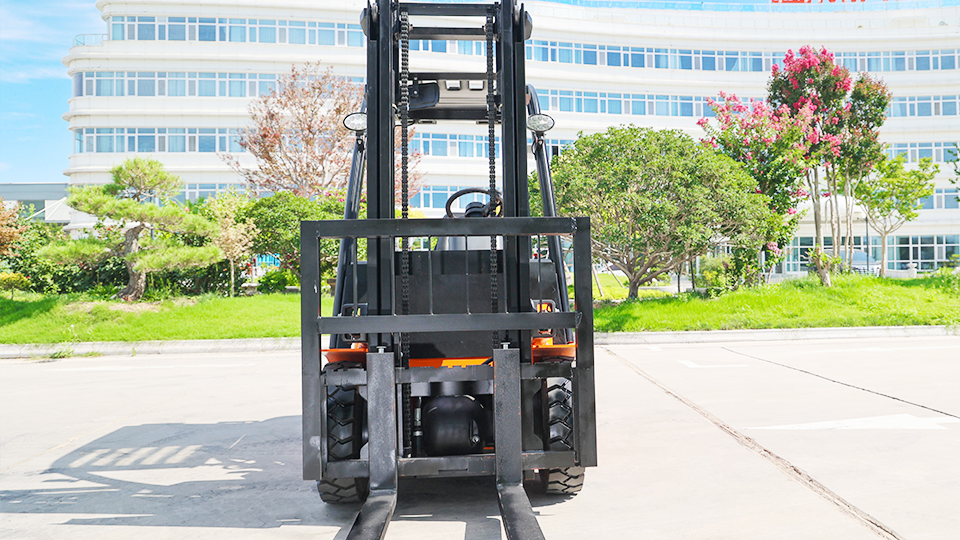
Section 1: The Anatomy of a Propane Forklift
Engine & Fuel System: At the heart of a propane forklift is an internal combustion engine (ICE) modified to run on liquefied petroleum gas (LPG). The fuel system is comprised of a pressurized propane tank, a fuel line, a regulator, and a carburetor or fuel injector system. The regulator plays a crucial role in converting the liquid propane into a gaseous state and controlling its pressure for a consistent fuel supply to the engine.
Hydraulic System: Like all forklifts, the propane variant uses a hydraulic system to lift, lower, and tilt the mast. This system consists of a hydraulic pump, a reservoir, control valves, and hydraulic cylinders. The engine drives the hydraulic pump, which pressurizes the fluid to perform these essential functions.
Exhaust System: A key technical component is the exhaust system, which includes a catalytic converter. This device is essential for reducing harmful emissions such as carbon monoxide, hydrocarbons, and nitrogen oxides, making the forklift suitable for indoor use in well-ventilated areas.
Propane Tank: The portable, high-pressure steel tank is the most visible difference from other forklift types. Tanks come in various sizes (e.g., 20 lb, 33 lb) and are designed with specific safety features, including pressure relief valves and a fuel gauge. Proper tank handling and secure mounting are critical for safe operation.
Section 2: Performance and Operational Advantages
Continuous Power and Performance: Propane forklifts offer consistent power throughout their operation, unlike electric models where battery performance can degrade as the charge diminishes. This makes them ideal for demanding applications and longer shifts.

Rapid Refueling: One of the most significant advantages is the speed of "refueling." A simple tank swap takes only a few minutes, virtually eliminating downtime. This is a major benefit over the multi-hour charging cycles required for electric forklifts or the time-consuming process of diesel fueling.
Versatility in Applications: Propane forklifts are true workhorses. They are powerful enough for outdoor use on uneven surfaces and in diverse weather conditions, yet they produce emissions that are manageable enough for indoor operation in adequately ventilated spaces. This dual-use capability is a key differentiator.
Cost-Effectiveness: While the initial purchase price might be comparable to other forklift types, the cost of propane fuel and the minimal maintenance required can lead to lower total cost of ownership over the machine's lifespan.
Section 3: Safety, Maintenance, and Technical Challenges
Propane Handling and Storage: The most critical safety aspect involves the propane tanks. Operators must be trained on how to properly connect and disconnect the tanks, check for leaks, and store full and empty tanks securely in designated, well-ventilated areas. The pressure relief valve's functionality must be understood, and tanks must be handled with care to prevent damage.
Ventilation Requirements: While propane forklifts are cleaner than their diesel counterparts, their emissions are not zero. The primary concern is carbon monoxide (CO) buildup in enclosed spaces. A technical article would detail the importance of proper ventilation calculations for indoor environments and the use of CO detectors to ensure operator safety.
Regular Maintenance Schedule: A propane forklift requires a regular maintenance schedule similar to other ICE vehicles. This includes:
Engine oil and filter changes.
Spark plug inspection and replacement.
Air filter checks.
Hydraulic fluid level checks.
Catalytic converter inspection.
Regular leak checks on the fuel system.
Mast and chain lubrication.
Tank-Related Issues: Technical challenges can arise from the propane tank system, such as a clogged fuel filter in the tank's dip tube, a malfunctioning regulator, or a leak in the fuel line. A good article would provide troubleshooting steps for these common issues.

Conclusion: The Enduring Role of Propane Forklifts
Propane forklifts continue to be a dominant force in material handling due to their powerful performance, operational flexibility, and efficient refueling process. A technical understanding of their engine systems, hydraulic components, and most importantly, the safety protocols for handling propane, is essential for any operator or fleet manager. As industries seek reliable and versatile equipment, the propane forklift remains a compelling and practical solution for a wide range of applications.
Name: selena
Mobile:+86-13176910558
Tel:+86-0535-2090977
Whatsapp:8613181602336
Email:vip@mingyuforklift.com
Add:Xiaqiu Town, Laizhou, Yantai City, Shandong Province, China